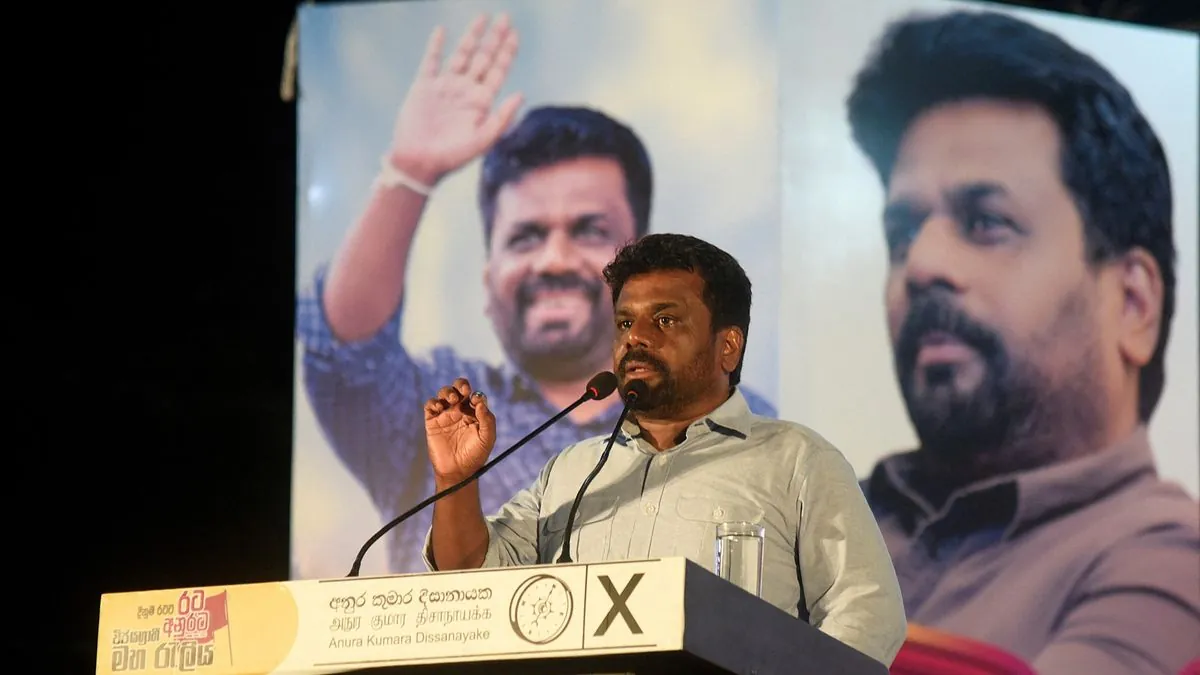In a significant political shift, Anura Kumara Dissanayake emerged victorious in Sri Lanka's presidential election on September 23, 2024. His triumph represents a public desire for change in a nation grappling with economic challenges and political instability.
Dissanayake, 55, campaigned on an anti-corruption platform, distinguishing himself from Sri Lanka's traditional political dynasties. His party, Janatha Vimukthi Peramuna (JVP), played a role in the 2022 protests that led to the ousting of then-President Gotabaya Rajapaksa during a severe economic crisis.
Despite his outsider status, Dissanayake is not new to politics. He has served in Parliament for over two decades and briefly held a cabinet position in 2004-2005. While his party has roots in Marxist ideology, Dissanayake has moderated his stance, supporting free trade and international financial assistance.
The new president faces significant hurdles in implementing his reform agenda. Sri Lanka's parliament is currently dominated by established parties, with the Rajapaksa-led party holding 145 of 225 seats. Dissanayake has called for early legislative elections in November 2024, aiming to increase his party's representation.
Dissanayake's economic policies have raised concerns among the business community. His plans for protectionist measures and support for small enterprises contrast with previous administrations' approaches. Additionally, his pledge to renegotiate Sri Lanka's IMF deal could potentially strain relations with international donors.
Winning the trust of Sri Lanka's minority communities, particularly Tamils, presents another challenge for Dissanayake. His party's historical support for government actions during the civil war remains a sensitive issue. Sri Lanka's 26-year civil war, which ended in 2009, left deep scars on the nation's social fabric.
In his inauguration speech on September 25, Dissanayake called for national unity. Experts suggest that engaging with skeptics, reaching across political aisles, and clarifying his positions to the business community could help him navigate these challenges.
Sri Lanka, an island nation of 22 million people, has faced significant economic turbulence in recent years. As the world's fourth-largest tea producer and a popular tourist destination, the country's economy has been hit hard by global events and domestic instability.
"Our nation stands at a crossroads. We must unite to overcome the challenges ahead and build a prosperous, corruption-free Sri Lanka for all its citizens."
In regional news, the Quadrilateral Security Dialogue (Quad) held its annual leaders' summit in Wilmington, Delaware, on September 21. The meeting, attended by leaders from Australia, India, Japan, and the United States, focused on maritime security and clean energy initiatives.
Pakistan appointed Lt. Gen. Asim Malik as its new spy chief, effective September 30. Malik's expertise in foreign policy and counterterrorism is expected to shape Pakistan's security strategy.
Meanwhile, Bangladesh's interim leader, Muhammad Yunus, attended the UN General Assembly, seeking international support for economic stabilization and institutional reforms.
In Indian-administered Kashmir, a milestone election is underway, marking the first regional polls since India revoked the area's special autonomous status in August 2019. The election, running from September 18 to October 1, is seen as a test of New Delhi's policies in the disputed region.
As Sri Lanka embarks on this new political chapter under Dissanayake's leadership, the coming months will be crucial in determining the country's path towards economic recovery and political reform. The nation's ability to balance change with stability will be closely watched by regional and global observers alike.
